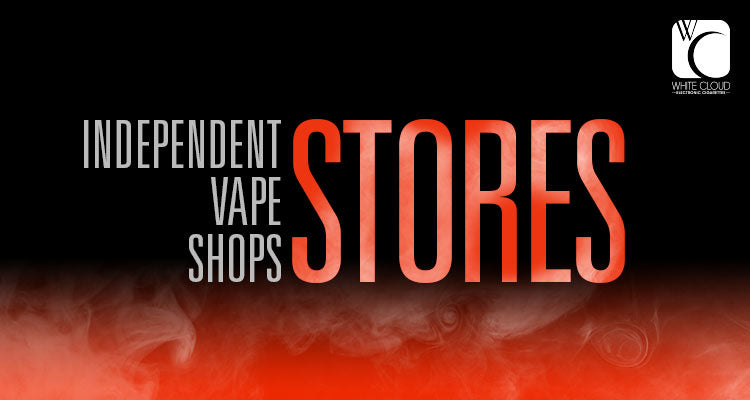One of the biggest concerns regarding the FDA’s regulation of vapor products is the impact it will have on small vape shops. Most vape shops are privately owned, family-run businesses – what you might call “mom-and-pop shops”. Many of these smaller vapor product retailers built their shops from their life savings and simply cannot afford to comply with the FDA’s onerous regulations.
As a result, they will be forced out of business, despite the additional assistance being offered by the FDA (which does not help with cost). Even the larger e-cigarette manufacturers have concerns about the expensive PMTA process. As a matter of fact, one of the largest e-cigarette manufacturers declared bankruptcy shortly after the deeming regulations took effect, citing the costly PMTA process as one of the reasons they will be leaving the vaping industry.
How Do FDA Regulations Affect Vape Shops?
So, how do the FDA’s Deeming Regulations affect smaller vape shops? This was one of the main topics discussed during our DeMISTified webinar series, as many of the attendees were actually vape shop owners. Below you will find questions about this topic with answers from industry experts.
Yes, coils and modifications to coils are subject to FDA regulations. If you modify or change a coil, you will need to submit a PMTA, as the FDA’s PMTA Guide states:
“Any modification (including a change in design, any component, any part, or any constituent, including a smoke constituent, or in the content, delivery or form of nicotine, or any other additive or ingredient) of a tobacco product where the modified product was commercially marketed in the United States after February 15, 2007.”
The FDA states a “tobacco product manufacturer” is “any person, including any repackager or relabeler, who:
(A) manufactures, fabricates, assembles, processes, or labels a tobacco product; or
(B) imports a finished tobacco product for sale or distribution in the United States.”
According to the FDA, a vape shop is essentially an Electronic Nicotine Delivery System (ENDS) retailer that can do a variety of activities; therefore, they may be subject to tobacco retailer or tobacco manufacturer regulations, or both! The FDA considers these activities to be deemed as “tobacco product manufacturers”:
- Vape shops selling a variety of ENDS products to consumers from devices to replacement pieces.
- Vape shops mixing different e-liquids for direct sale to consumers for use in ENDS.
What are the critical dates that vape shop owners need to be aware of?
There are a number of critical dates vape show owners must be aware of in regards to the FDA’s Deeming Regulations. The Vapor Technology Association (VTA) created a detailed FDA deeming regulations calendar to help vape shop owners and manufacturers.
How does photo identification for anyone 18 and over affect online sales of e-liquids and vaping devices?
According to the FDA regulations, retailers and manufacturers both online and in-store cannot sell, distribute or engage in the sale of tobacco products to users who are under the age of 18. Most e-cigarette manufacturers and vape shop owners have prepared for this by having employees physically check IDs in store or by using an electronic age verification device for online orders. For example: White Cloud uses a service called Lexis Nexus for vaping age verification before shipping our products to new customers. This age verification process was implemented long before the FDA’s vaping regulations took effect.
The U.S. Postal Service and other carriers are not subject to penalties when they deliver a package; however, there are state laws set in place that have implemented restrictions on online e-cig sales, including California which requires a signature upon delivery, along with matching billing and shipping addresses.
Other local and state governments have also increased the tobacco purchasing age from 18 to either 19 or 21, so it’s best to become familiar with the different age restrictions set in place when shipping vapor products.
Can shops custom mix on site per order after August 8, 2016?
As of August 8, 2016, vape shops cannot sell custom e-liquid mixes without an approved Premarket Tobacco Application (PMTA). Each individual e-liquid is subject to the regulations and must obtain PMTA approval to remain on the market. This includes every e-liquid flavor in every nicotine strength, as Dr. Michael Siegel stated during our webinar:
“Any combination of flavoring and nicotine strength is considered a separate product. So if you sell 10 e-liquids and each of them come in 3 different nicotine strengths, that’s 30 different products.”
In a Regulatory Impact Analysis (RIA), the FDA estimated about 5,000 to 10,000 vape shops exist with 70% mixing their own e-liquid. This would mean that roughly 3,500 to 7,000 vape shops would be considered “tobacco product manufacturers”.
Consumers can still mix their own e-liquids, as long as it is used for personal consumption only. If they mix e-liquids with the intent to sell, then they are considered tobacco manufacturers and are subject to the regulations.






